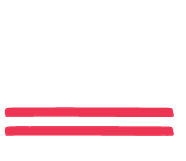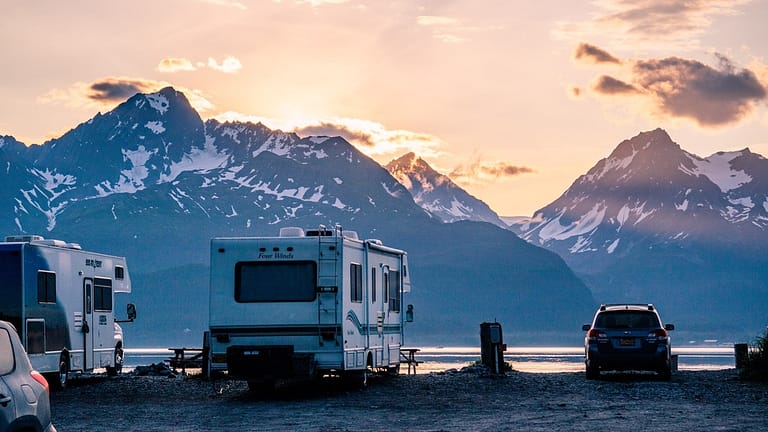Embarking on the exciting journey of RVing can open up a whole new world of adventure and freedom. Whether you’re planning to hit the road for a weekend getaway or exploring new destinations for an extended period, having some essential knowledge under your belt is crucial. In this article, we will cover the top five things that every beginner RVer needs to know, from understanding the basics of RVing to mastering the art of maintaining your home on wheels.
Understanding the Basics of RVing
What is RVing?
RVing, short for recreational vehicle-ing, is a form of travel where you use an RV as your mode of transportation, accommodation, and kitchen all in one. It provides a unique way to experience the great outdoors without sacrificing the comforts of home.
Imagine waking up to the sound of birds chirping, stepping outside your RV, and being greeted by breathtaking views of mountains, lakes, or forests. With RVing, you have the freedom to choose your own adventure and explore the beauty of nature at your own pace.
Whether you choose a motorhome, travel trailer, or camper van, RVing allows you to embark on a journey of discovery. It’s not just a means of transportation; it’s a lifestyle that brings you closer to nature and provides endless opportunities for unforgettable adventures.
Different Types of RVs
When it comes to RVs, the options are plenty. Motorhomes, which are self-contained units with a driving compartment, provide all the amenities you need, including living and sleeping spaces, a kitchen, and a bathroom.
Imagine having the freedom to travel wherever your heart desires, with all the comforts of home right at your fingertips. Motorhomes come in various sizes and styles, from Class A luxury coaches to Class C compact models. No matter your preference, there’s a motorhome out there that suits your needs and budget.
Travel trailers, on the other hand, require a separate towing vehicle and offer various floor plans and sizes to suit different needs. They are a popular choice among RV enthusiasts who prefer the flexibility of being able to unhitch their living space and explore the surrounding areas with ease.
Camper vans, also known as Class B motorhomes, are compact and versatile, making them ideal for solo travelers or couples looking for a nimble and efficient RVing experience. These vans are equipped with all the essentials, including a bed, kitchenette, and bathroom, allowing you to hit the road and embark on spontaneous adventures.
Whether you choose a motorhome, travel trailer, or camper van, RVing offers a world of possibilities. From road trips across the country to weekend getaways in nature, the freedom and flexibility of RV travel allow you to create memories that will last a lifetime.
Essential Equipment for Every RVer
Necessary RV Appliances
Equipping your RV with essential appliances can significantly enhance your overall comfort while on the road. A refrigerator, stove, and microwave will allow you to prepare your meals easily, ensuring you have delicious and nutritious food throughout your journey. Additionally, having a hot water heater, air conditioner, and heater can make a significant difference in your comfort, no matter the weather conditions. Don’t forget to include a reliable generator or solar panels to power your appliances when you’re off-grid.
Safety Equipment for Your RV
Prioritizing safety while RVing is of utmost importance. Always carry a fire extinguisher, smoke detector, and carbon monoxide detector to ensure early detection and response to potential dangers. Investing in tire pressure monitoring systems will help you keep tabs on your tire health, reducing the risk of blowouts. It’s also essential to have a first aid kit readily available and to familiarize yourself with basic RV maintenance to prevent issues on the road.
Tips for Driving and Parking Your RV
Mastering RV Driving Skills
Driving an RV requires a different set of skills compared to operating a regular vehicle. Take the time to practice maneuvering, braking, and turning in an open space before hitting the road. Remember to take wider turns to accommodate the size of your RV and maintain a safe following distance. Use caution when passing or being passed by other vehicles, as RVs have larger blind spots. Lastly, be mindful of height restrictions, such as low bridges and overpasses, and plan your routes accordingly.
Parking Your RV: Do’s and Don’ts
Parking your RV can sometimes be challenging. Familiarize yourself with the dimensions of your vehicle and find suitable spots that can accommodate its size. When parking at campsites or RV parks, follow any guidelines provided and be respectful of your neighbors’ space. Ensure your RV is level by using leveling blocks or jacks to avoid uncomfortable nights or issues with appliances. Remember to secure your RV properly to prevent accidental movement while parked.
Maintaining Your RV
Regular RV Maintenance Tasks
To keep your RV in top shape, regular maintenance is essential. This includes checking and maintaining the integrity of your RV’s roof, inspecting and servicing the brakes, tightening or replacing belts and hoses, and regularly changing the oil and filters. Don’t forget to maintain your RV’s batteries by testing and replacing them as needed. Adhering to a strict maintenance schedule will help you avoid costly repairs and ensure the longevity of your vehicle.
Dealing with Common RV Issues
No matter how well-maintained your RV is, it’s inevitable to encounter occasional issues. Understanding how to troubleshoot common problems can save you time and frustration on the road. Knowing how to fix a leaky faucet, unclog a toilet, or replace a blown fuse are essential skills every RVer should have. It’s also a good idea to have a list of reliable RV repair shops and mechanics in case you need professional assistance while traveling.
Planning Your RV Trip
Choosing Your RV Destination
One of the most exciting parts of RVing is choosing where to go. From national parks to serene coastal getaways, there are countless destinations waiting to be explored. Research and plan your routes in advance, taking into consideration the length of your stay, driving distances, and available amenities. Don’t forget to check for campsite availability and make reservations early, especially during peak seasons. Embrace spontaneity, but be prepared to have alternative options if your preferred destination is fully booked.
Essential Tips for a Successful RV Trip
To ensure a successful and enjoyable RV trip, it’s important to be prepared. Pack essentials such as food, water, clothing, toiletries, and camping gear. Create a checklist to ensure you don’t forget any important items. Familiarize yourself with local regulations and campground rules to avoid any surprises. Finally, embrace the RVing community and connect with fellow RVers. They can provide valuable tips and recommendations, enhancing your overall experience on the road.
In Conclusion
By understanding the basics of RVing, equipping yourself with essential equipment, mastering driving and parking skills, and staying on top of regular maintenance, you’ll be well-prepared to embark on your RV adventures. Planning your trip wisely and embracing the RVing community will ensure memorable and fulfilling experiences as you explore the wonders of the open road. So, get ready to embark on your RVing journey, and may it be filled with joy, freedom, and lifelong memories.

